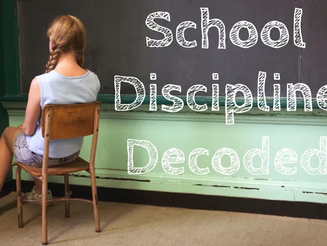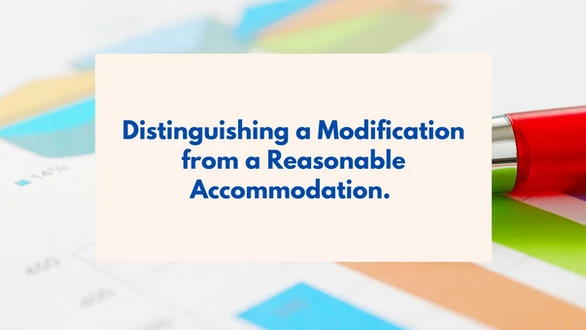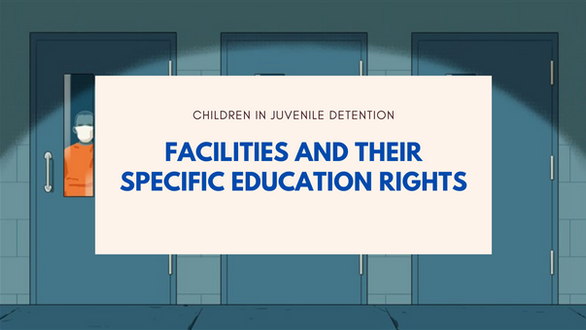Students with disabilities are entitled to a Free and Appropriate Education (FAPE), which usually necessitates special education services. These services, such as an Individualized Educational Program (IEP) and a 504 Plan, are implemented to accommodate students with disabilities so that their success in school is not forever hindered by the challenges they face in learning and processing information. However, students with disabilities are not exempt from being disciplined if they break a school rule. Schools are entitled to discipline students with disabilities, but when it comes to suspension or expulsion, the rights of special education students do differ from those of general education students. Special education services provide that schools, in collaboration with parents, must work to understand the cause of the student’s misbehavior. The cause is often associated with the child’s disability, so the school must be prepared to understand the issue as they tailor a disciplinary plan.
All students and parents are entitled to full knowledge of school rules and policies. Additionally, when accused of breaking a rule, students have the right to challenge it and prove their innocence. (1) Discipline is a bit different when it comes to special education students. Suspending or expelling a student from school entails a change of placement for a student, which can disrupt special education services. The treatment remains the same if this change of placement lasts 10 days or less, however there are exceptions to consider. If, for example, a special education student is repeatedly suspended for a period shorter than 10 days at a time, it is likely that the school is not adequately addressing the cause of their misbehavior, as is outlined in their IEP or 504 Plan. Additionally, if a change of placement (a suspension or expulsion) lasts longer than 10 days, the Individuals with Disabilities Education Act (IDEA) mandates that the student’s special education services be provided in this new location.
Regardless of the number of days a special education student is suspended from school, the IDEA provides that the school must conduct a special evaluation called a “manifestation determination,” so as to properly address the cause of the student’s misbehavior. The ultimate question to be answered is whether, and to what extent, the child’s disability contributed to his or her misbehavior. If the result shows that the misbehavior was primarily caused by the disability, the student’s IEP team must discern when and why the misbehavior happens, in a process called a “functional behavioral assessment.” Then, the team must create a “behavioral intervention plan” so as to minimize and prevent future misbehavior. The school must also allow the student to return to school, except in an extreme situation in which the student “brought a weapon to school, had illegal drugs at school, or caused serious bodily injury to another person at school. In these cases, the school can continue to keep her out of school for up to 45 school days, but must still provide [special education] services.” (2) Alternatively, if the result of the manifestation determination shows that the misbehavior was not caused by the student’s disability, the school may treat the student the same as any other student who doesn’t have an IEP or 504 Plan, with the exception of maintaining the necessary services when the change of placement exceeds 10 days. Finally, if the result shows that the misbehavior happened due to a misstep in the school’s implementation of the student’s IEP, the school is responsible for immediately fixing the issue and properly implementing the IEP.
“Stay Put” Rights
If a parent disagrees with the school’s decision to discipline their child who has an IEP or 504 Plan, the parent may appeal the decision, typically to the school board. Additionally, parents may challenge a manifestation determination or placement decision. During such a dispute, the child may stay where he or she is, whether that be at home or at school. This is known as the “stay put” rights, which protect the student when the school wants to change his or her educational placement. This placement also includes the maintenance of the special education services outlined in the student’s IEP or 504 Plan. Unfortunately, in many states parents must act quickly in order to be guaranteed these rights; depending upon respective state laws, if they do not file their appeal/dispute within 15 days of being informed of the change in placement, the school district may have the right to move forward with the change. If the parent requests a due process hearing, it might take months before a hearing officer decides your case and any appeal process is completed. During that time, the school can’t change your child’s IEP. It must stay put until the case is resolved.” (3) In addition to the 15-day rule that exists in some states, there is an exception to these rights: the school may remove a student for 45 days if failing to do so could put the student at risk of hurting him or herself or others. Of course, during those 45 days the school is required to continue providing special education services as outlined in the student’s IEP or 504 Plan.
Before a child’s behavior renders necessary disciplinary measures, parents must be proactive in supporting their special education student. Emotional counseling and positive behavioral supports are advisable and available by request.
1.) Lee, A.M.I., “School Discipline: The Rights of Students With IEPs and 504 Plans.” Understood.org.
2.) Lee, A.M.I., “School Discipline: The Rights of Students With IEPs and 504 Plans.” Understood.org.
3.) Lee, A.M.I., “‘Stay Put’ Rights: What They Are and How They Work.”Understood.org.











